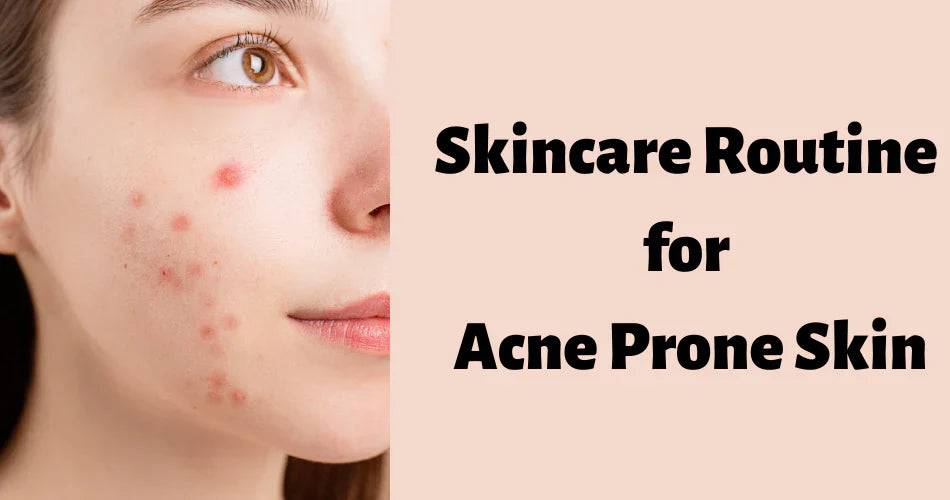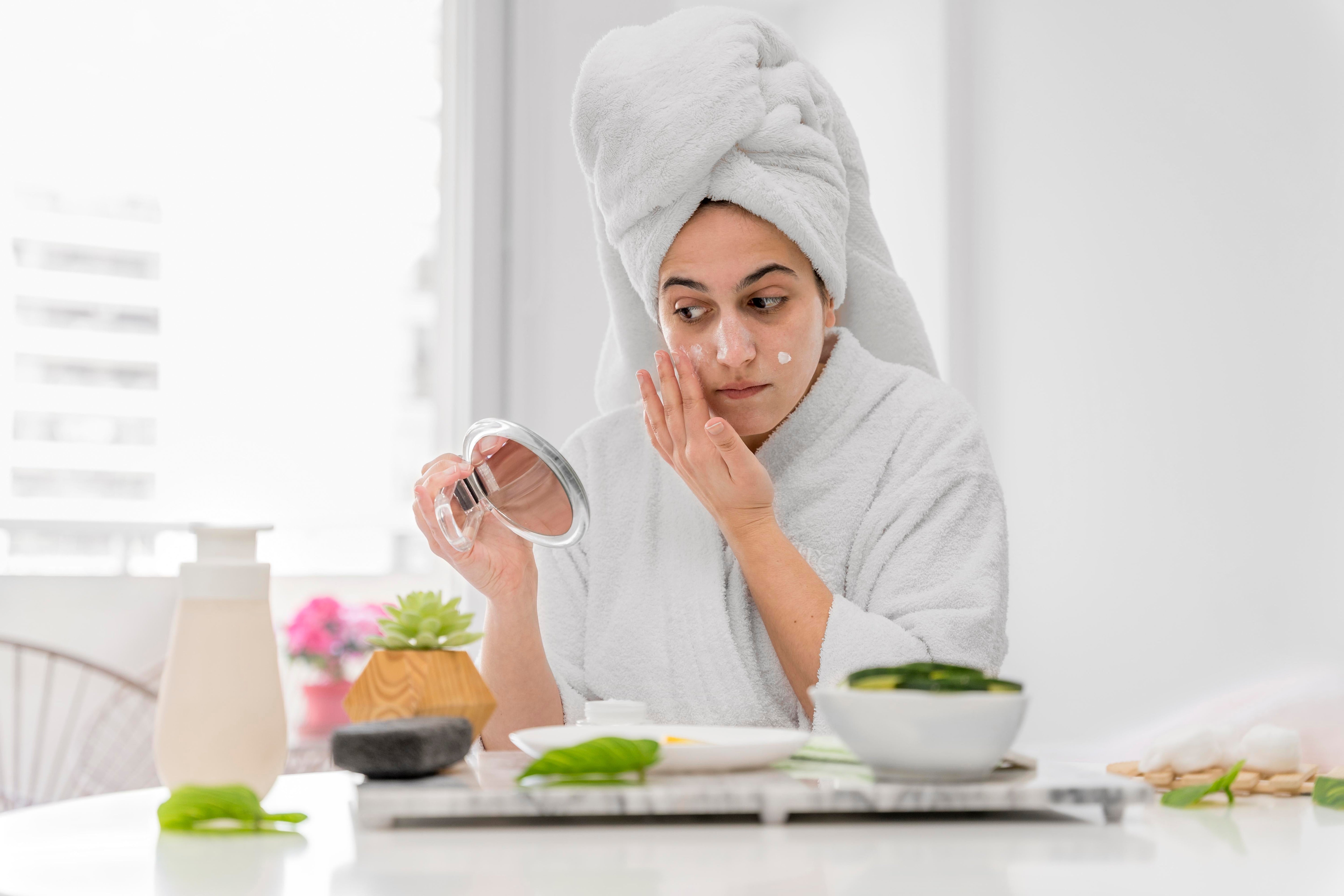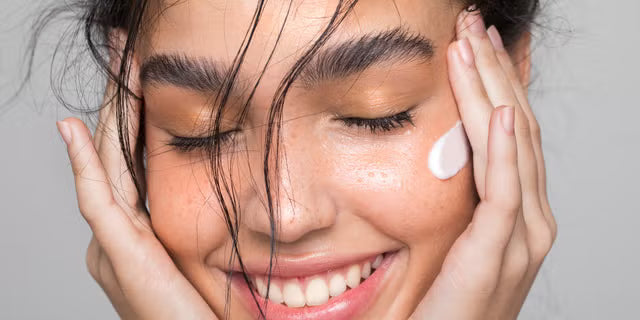
The Best Skincare Routine for Acne-Prone Skin
Are you afraid of the scars and blemishes caused by acne? Acne can sometimes make your face look ugly and bothersome. Acne is a prevalent skin condition that affects both adults and children, and it affects a sizable section of the Indian population. Acne treatment requires using the best products available and leading a healthy lifestyle. Even though there are many products available, it can be even more difficult to choose the best ones for you.
Things you should know about acne-prone skin
An estimated 80% of people between the ages of 11 and 30 suffer from acne, making it one of the most prevalent skin conditions. It is typical for young adults and adolescents going through hormonal transitions. Hormonal fluctuations combined with a family history of acne may suggest that acne is genetically based. Men are more likely to have acne than women, who get acne as children, while women are more likely to get acne as adults. Acne can have many different causes, some of which are listed below.
- Sebum production is excessive.
- Hormonal shift.
- Bacterial growth within the pores.
- Through dead cells.
- Obstruction of the pores.
Types of Acne
- Whiteheads: Whiteheads are small, round, or white pimples that appear on the surface of the skin. This occurs when dead skin cells, bacteria, and excess oil (sebum) clog pores. They mostly show up on the face, especially the chin, nose, and forehead.
- Blackheads: Because of the oxidation of fat by atmospheric oxygen, blackheads appear blackish. Blackheads can also form as a result of genetics, environmental factors, and specific products.
- Acne Papules: A comedo is a tiny red pimple that develops on the skin when skin cells and excess oil clog a skin pore. Bacteria and excess oil production clog the pores in the skin, causing papules to form.
- Acne pustules: Excess sebum and dead skin cells clog the pores of the skin in this form of acne. Usually appearing as white spots encircled by red or swollen skin, it is a tiny bump on your skin that contains fluid or pus. It can be found on the face, chest, and back. While minor pustules might disappear on their own, more serious ones need medical attention.
- Nodules are hard, inflammatory bumps that develop inside the skin. Compared to other forms of acne, these bumps are typically bigger and more painful. It typically manifests on the lungs, on either side of the chest, the head, neck, armpits, and groin. It takes longer to heal than papules and is most likely produced by the thyroid gland.
Best Ingredient for Acne-Prone Skin
- Salicylic acid : Salicylic acid is an ingredient in many over-the-counter and prescription skin care products for acne-prone skin. This beta hydroxy acid exfoliates and eliminates dead skin cells. By doing this, you can avoid clogging your pores.
- Benzoyl Peroxide: It is a popular acne treatment. Both prescription and over-the-counter medications are available in the form of soap, gel lotion, cream, and face wash. Your skin's bacteria are killed by benzoyl peroxide. By eliminating dead skin, it also aids in unclogging.
- Oil of Tea Tree : This essential oil is derived from tea tree leaves. A gel that contains 5% tea tree oil might be just as effective at treating acne as one that contains 5% benzoyl peroxide. Tea tree oil, however, might not function as quickly as other ingredients.
- Niacinamide: An anti-inflammatory niacinamide helps to lessen the redness and swelling that come with acne. Additionally, it helps control how much oil your skin's glands produce, which causes acne. Furthermore, it controls skin tone and can aid in the removal of red, purple, and brown skin discolorations caused by acne.
- Hyaluronic Acid: Hyaluronic acid helps heal scars, reduces redness and inflammation, hydrates without clogging pores, and may even help prevent excessive oil production.
- Vitamin C: Vitamin C, also referred to as ascorbic acid, is an antioxidant with anti-inflammatory qualities. In skin that is prone to acne, it can help reduce redness and swelling.
- Azelaic acid. : Azelaic acid, a substance found naturally, has antibacterial and anti-inflammatory qualities. It also aids in preventing the accumulation of keratin, a protein that can clog pores.
Skincare Routine for Acne-Prone Skin
Morning Routine
Gentle cleansing: Use a gentle face wash or a cleanser followed by lukewarm water to wash your face or skin. After that, dry with a soft towel.
Targeted Treatment: Apply a product that is formulated for acne-prone skin. You can either use a face serum or a toner to soothe your skin. Serum helps in targeted treatment by absorbing quickly into your skin.
Lightweight moisturizer: Choose a non-comedogenic moisturizer that helps you attain hydration without clogging the pores. It should be used after a serum.
Sunscreen: Whether you need to go outside or not, use a broad-spectrum and oil-free sunscreen with SPF 30 or higher..
Evening Routine
Makeup Removal (optional): It is completely optional, as it is used to remove the previous makeup that you have applied. You can go for a cleanser instead of this step; that is okay.
Gentle Cleansing: Using a gentle cleanser or a face wash twice a day is considered good for the skin. So, it is advised to clean your skin.
Targeted Treatment: Apply a spot treatment with salicylic acid or benzoyl peroxide. It helps in reducing the effect of blemishes by fading the scars and promoting healing. Other acne-formulated products can also be used, but make sure they suit your skin.
Lightweight Moisturizer: A lightweight moisturizer helps to retain the hydration in the skin and soothes your skin, which prevents various skin concerns.
Important Note:
Your skin must use a product that suits it best. Otherwise, it may lead to other skin concerns. The ingredients or products that you use, make sure to check the label first, then try a patch test to confirm that it is good for your skin. If you are stuck in the loop where you are not able to recognise which product will be safe for your skin and give you the best result. Then you can check out skya. ae, They have a wide range of products, covering all types of skin concerns, and are formulated with natural ingredients and helping you to achieve the skin you dream of.








